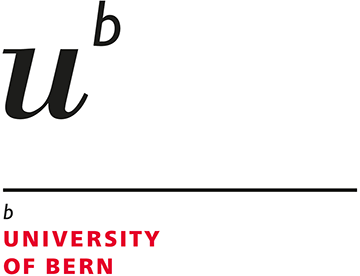Summer school takes science diplomacy to new level
When two researchers – one Israeli, the other Palestinian - met at a conference, they bonded over a mutual interest in a parasite and realized that science can indeed cross borders. This ethos is at the heart of the summer school they went on to found, the Middle Eastern Biology of Parasitism (MeBoP), which is hosted by the University of Bern.
Author: Faryal Mirza, UniBE International Office
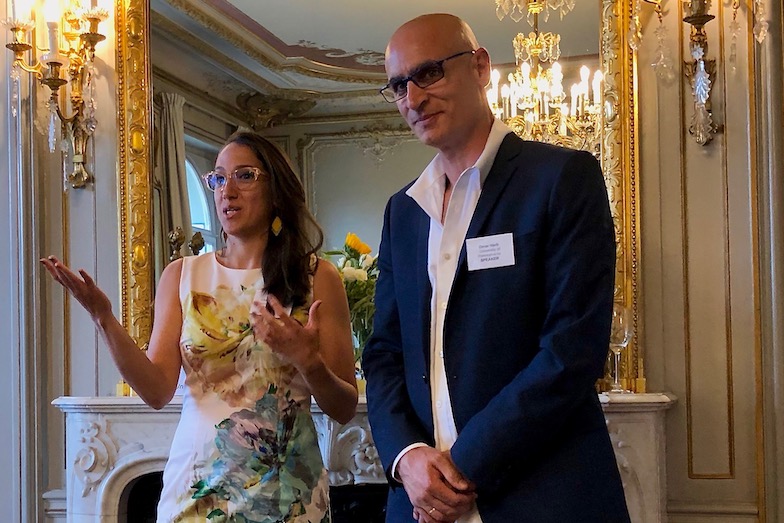
The brainchild of the Lilach Sheiner and Omar Harb, MeBoP is open to graduate students, postdocs and young professionals from the Middle East, North and Sub-Saharan Africa. It aims to provide young scientists the opportunity to focus on the biology of parasites or parasitology, while overcoming regional and cultural differences and geopolitical realities.
Mutual interest
This mirrors the beginnings of Sheiner and Harb’s own friendship. “When Omar and I first met, we realized that it is very easy for the two of us to converse regardless of whatever personal baggage we might be bringing with us because we have a mutual interest that is not dependent on any border,” explains Sheiner, who leads a lab at the University of Glasgow.
In their case, this interest was fueled by Toxoplasma gondii, a parasite responsible for toxoplasmosis, a foodborne illness that can cause serious illness or even death. It soon dawned on the two scientists that a summer school in parasitology could make its own special contribution to helping researchers from diverse backgrounds connect over science.
“If you bring together scientists from the Middle East, North Africa and Sub-Saharan Africa and give them a venue where science excellence is the focus, the borders between people will crumble,” underlines Harb, an academic at the University of Pennsylvania.
Intense immersion
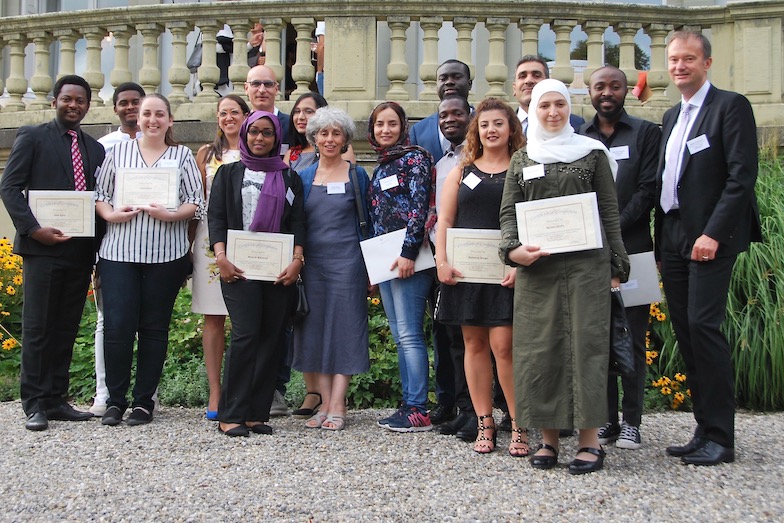
MeBoP 2019 participants with University of Bern Professor Isabel Roditi (centre, in blue) and Swiss Ambassador Stefan Estermann at the reception in Bern (far right) (Photo: Swiss Ministry of Foreign Affairs)
MeBoP participants are chosen through competitive selection. Those that make the cut spend two intense weeks in Bern immersed in cutting edge science. This includes daily lectures from eminent parasitologists, lab work and challenging group seminars. “Every year we are amazed by how hard the students are willing to work and inspired by seeing how they create contacts that are long-lasting,” says Sheiner.
As the summer school’s host, the University of Bern provides state-of-the-art facilities at no cost. Other sponsors have included the Bill and Melinda Gates Foundation, the Wellcome Centre for Integrative Parasitology and private donors. The international experts teaching on the course often do so in their own free time, as do Sheiner and Harb, and pay for their own flights to Switzerland.
Engaged participants
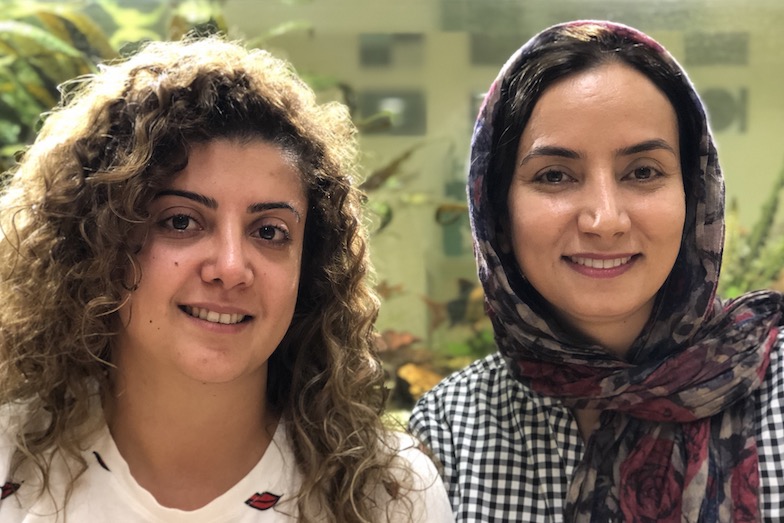
Since 2016, the year the summer school was founded, over 60 students from more than 20 countries have taken part. This year, 12 participants from Cameroon, Ghana, Iran, Israel, Lebanon, Nigeria, Tunisia, Sudan and Syria were in Bern from July 29 - August 14.
Stephanie Greige from Lebanon was among them, having recently completed a PhD in parasitology in her country of origin and France. “It was very exciting listening to top experts, learning about the latest trends in the field and making new connections and international friendships,” Greige says.
The city of Bern was also a big hit with participants. “I personally love Bern and its stunning historical architecture and especially walking along the Aare river at night,” Greige says.
Fellow participant Zahra Rezaei from Iran agrees. Rezaei is currently doing a PhD in medical parasitology in her home country. “I am grateful to Omar and Lilach for teaching us that humanity is beyond politics," she says.
"I hope that one day all boundaries will be removed from the path of science and that all researchers can communicate in a cooperative and friendly manner because we will not survive without cooperation,” Rezaei adds.
Bern venue
As to why the course is held in Switzerland, Harb explains: “Switzerland has a really strong humanitarian history, making it a natural place to host the summer school.”
For its part, the University of Bern is a proud host and supporter of this type of science diplomacy. "As an international institution, we are very pleased to contribute to international cooperation, especially in scientific research, networking and friendships of young scientists, who will be in charge in the future,” says the University's Vice-Rector Silvia Schroer.
"We admire MeBoP’s persistence and mission for cutting-edge science and crossing all kinds of borders. It is a wonderful way to share experiences and knowledge and could be a model for projects in other fields,” Schroer adds.
Furthermore, a professor at the University of Bern, Isabel Roditi, has been a strong supporter of the initiative since the beginning and was instrumental in bringing it to the Swiss capital. "We would like to thank Isabel for making this happen and her encouragement,” says Sheiner. The summer school has just taken place for the fourth time.
Celebrating MeBoP
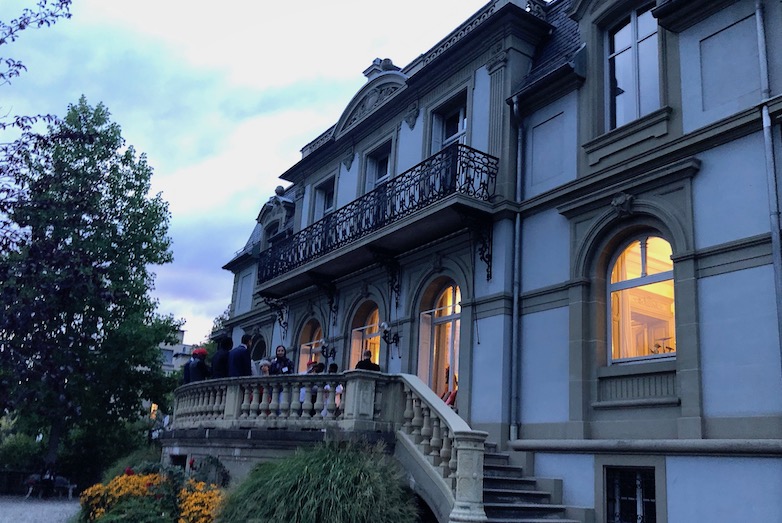
Vice-Rector Schroer recently opened an event celebrating MeBoP in August 2019, which was co-organised by the University of Bern and the Swiss Ministry of Foreign Affairs with support from the Swiss Academies for Arts and Sciences. Representing the Foreign Ministry was Ambassador Stefan Estermann, head of the division for sectoral foreign policies. “On behalf of the Swiss Government, we are very proud that the University of Bern hosts this initiative in Switzerland,” Estermann said.
While addressing the students, Estermann said: “During two weeks, you work together, no matter where you come from, showing that science has no borders. I hope that you will keep your friendships alive, stay in contact for the future and that you will continue to strive for excellence and international cooperation to create a culture of peace.”
Professor Antonio Loprieno, president of the Swiss Academies of Arts and Sciences, was also present. “It is a distinct pleasure to add the Academies’ voice to congratulate you very warmly on your achievements,” he said, addressing MeBoP’s founders, participants and lecturers.
Meanwhile, Sheiner and Harb have been nominated for the prestigious Science Diplomacy Award 2020 of the American Association for the Advancement of Science.
The next MeBoP summer school is scheduled to take place in July - August 2020, continuing with its mission to prove that science has no borders when knowledge-exchange and mutual research interests are at play.
Further information
About the author
Faryal Mirza is External Relations Manager at the University of Bern's International Office, whose focus is to raise the institution's international visibility in key stakeholders outside of Switzerland. They include science-diplomacy networks and partner universities.
